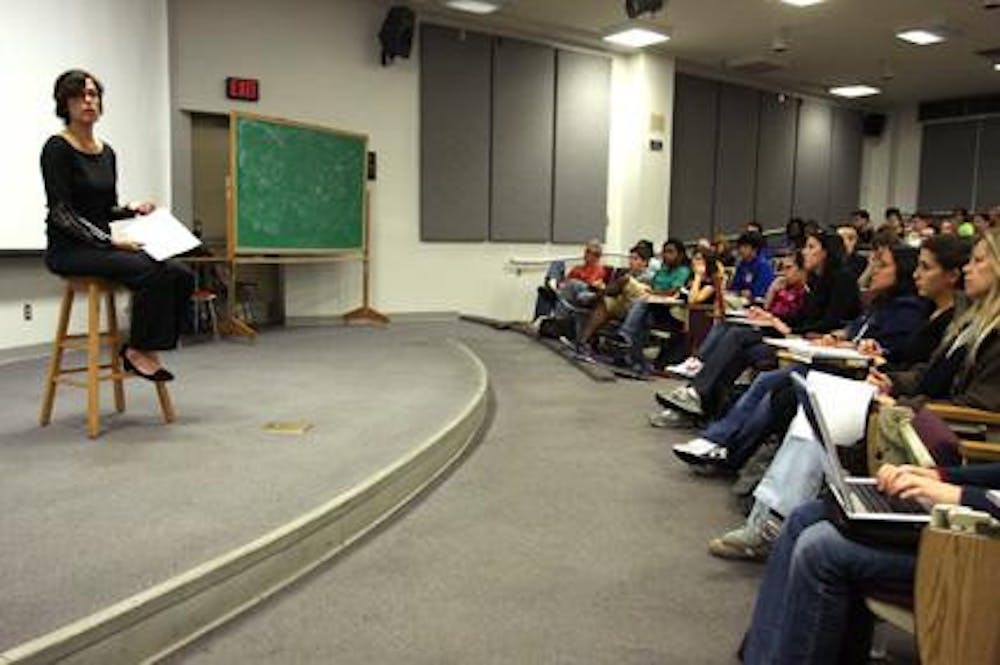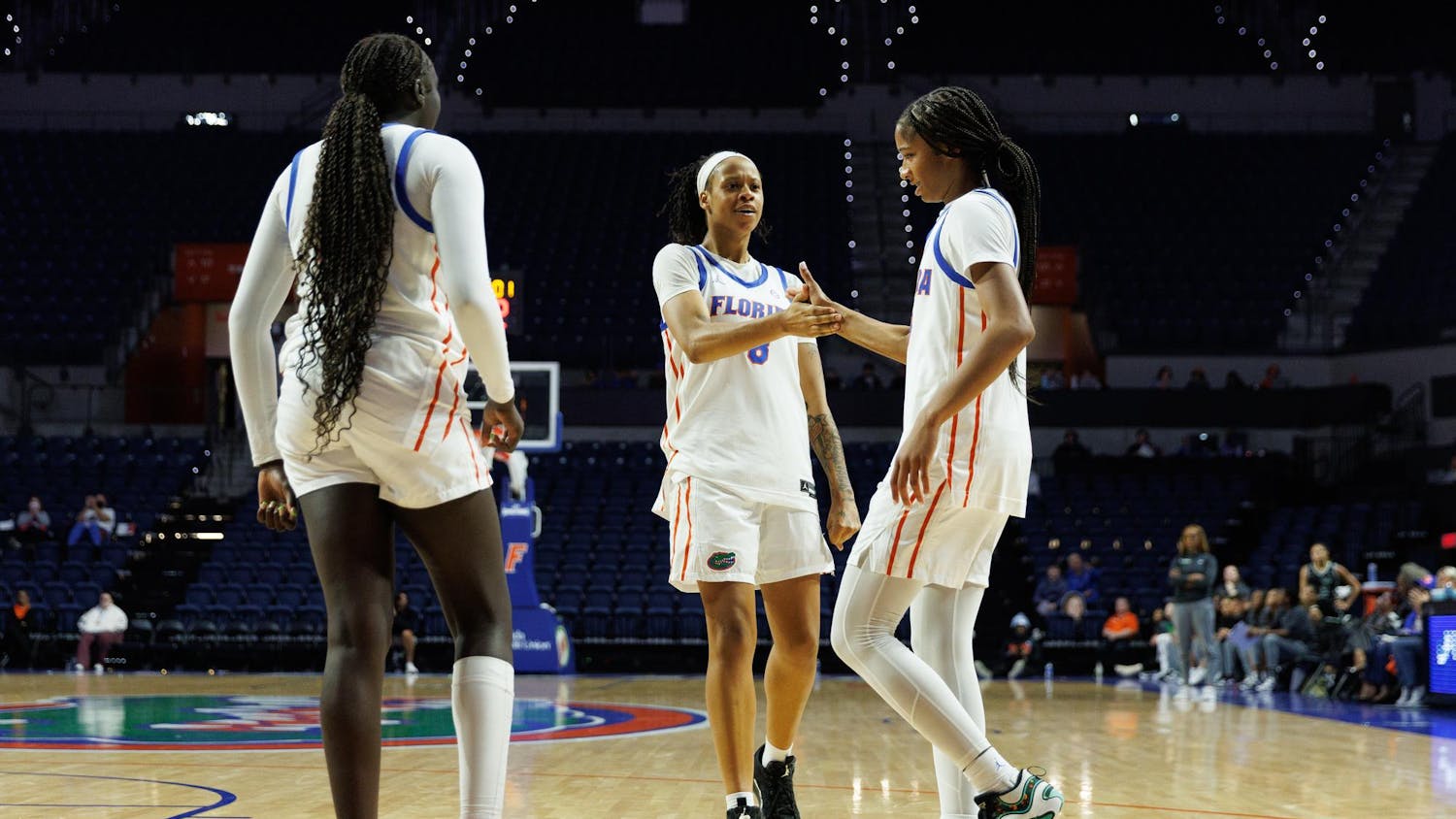Four-time Pulitzer Prize finalist Anne V. Hull, a Washington Post reporter, took time out of her three-month vacation to speak with UF journalism students on Monday about her career as a journalist.
Hull, whose most recent work includes breaking the 2007 scandal of Walter Reed Army Medical Center's mistreatment of wounded veterans, spoke to an introductory journalism class Monday and will visit other journalism classes today and Wednesday.
She shared her experiences covering Hurricane Katrina, following the lives of gay teens in America and sneaking into Ground Zero for 10 hours on Sept. 12, 2001.
Despite her professional accomplishments, Hull said she's probably the last person a college would want to speak to students because she only completed one year at Florida State University and two semesters at a St. Petersburg junior college.
She said she learned everything in the St. Petersburg Times newsroom, where she worked for almost 20 years.
"Reporting is reporting is reporting," she said. "It's just seeing things, being curious and when something doesn't hit you in the gut right, to ask a question about it."
Early in her career, when Hull was assigned to cover a live concert, she said she was backstage and heard a radio DJ announce that Bruce Springsteen was performing onstage.
She said she wrote about Springsteen's surprise appearance at the beginning of her story and sent it to her editors. The next day, she found out the DJ was wrong and that Springsteen had never gotten on the stage.
To this day, people still think Bruce Springsteen showed up because it appeared in the first edition of the paper, she said.
Hull, who asked for permission to "drop the F-bomb," said her editor's response to the incident suggested a potential new meaning for her middle initial: "Kid, you f- up one more time and that 'V' is going to stand for 'visitor.'"
A Washington Post reporter since 2000, Hull said she mostly writes about race, immigration and socio-economic issues.
She said she insists on including authentic, everyday language in her stories, whether people are speaking in broken English or using profanity.
Journalists have to be invisible, she said, adding that the hardest part of her job is resisting the urge to help people she interviews.
When she was covering Hurricane Katrina, she said she spent two and a half hours walking in circles with a mother and her son who were trying to hitchhike to Dallas.
As she left, the mother asked Hull if she would give them a ride. Hull said she even called her editor to see if it was possible, but her editor said her job was only to write the story.
"We're not Red Cross workers," Hull said. "We're not there to sort of make their life easier. We're just there to show how things are."






